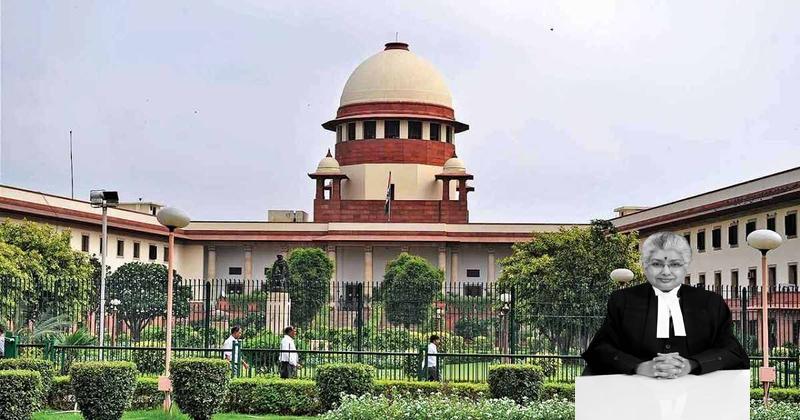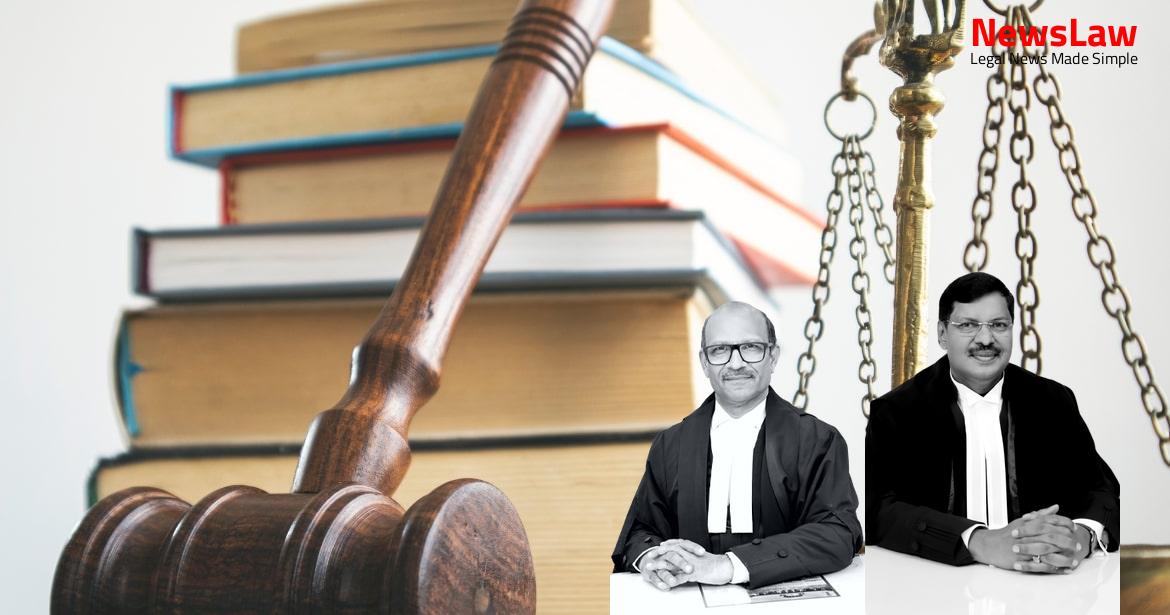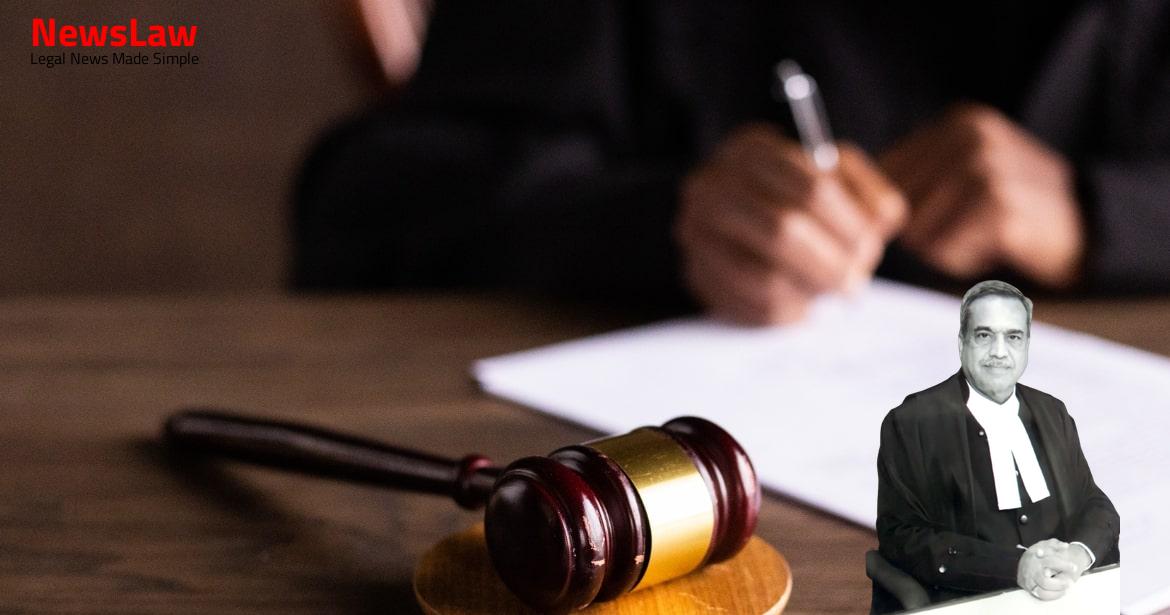The present criminal appeal is directed against the Final Judgment and Order dated 23.02.2021 (herein- after referred to as the “Impugned Judgment”) rendered by the High Court of Karnataka (hereinafter referred to as the “High Court”) at Bengaluru, whereby the High Court was pleased to reject Criminal Petition No 3788 of 2019 preferred by the appellant.
Also Read: https://newslaw.in/supreme-court/jurisdiction-of-nclt-in-valuation-of-assets-a-case-analysis/
It transpires that one Venkatesh, son of Late Bylappa, was the owner of old Survey Number 83 and his property had been assigned new Survey Numbers 80/1 and 80/3, and due to such change, with the new survey numbers with regard to the land in question being 4 Survey Number 83, the said Venkatesh claimed title over land under the new Survey Number 83. GMID impugned the cancellation before the High Court by way of a writ petition, which was disposed of directing GMID and the owners to approach the BBMP’s Appeal Committee. 317/2017 at Bagalgunte Police Station, Bangalore 6 City (hereinafter referred to as the “FIR”) under Section 3(1)(15) of the Scheduled Castes and Scheduled Tribes (Prevention of Atrocities) Act, 1989 (hereinafter referred to as the “SC/ST Act”) and Sections 427, 420, 419, 406, 471, 468, 448 and 120B of the IPC. The said petition was numbered Criminal Petition
No 3788 of 2019, and the High Court, by order dated 07.08.2019, while issuing 7 notice, granted ad-interim direction staying further proceedings in the FIR as far as the appellant was concerned. Learned senior counsel for the appellant submitted that firstly, the matter is purely civil in nature as it raises questions relating to title of the land on which GMID had entered into a JDA and constructed apartments after following the due procedure in law.
It was submitted that the issue of title of the property has attained finality in terms of the decree passed by the Civil Court and no appeal has been filed against the same. Learned counsel submitted that this Court has repeatedly deprecated the practice of filing false criminal cases in order to apply pressure and settle civil disputes.
Learned counsel also drew the attention of the Court to the fact that the complainant’s relatives initially tried to interfere with the suit property in 2006 due to which the original land-owners had initiated a civil suit in 2008, which was, in fact, decreed against the complainant’s family members. Learned counsel for the complainant/respondent no.
Also Read: https://newslaw.in/supreme-court/unfair-charge-framing-a-legal-analysis/
It was contended that Section 482 of the Code requires the court only to see, whether from the complaint, any cognizable offence is made out, which in the present case is made out.
Further, advancing that the FIR was not required to be an encyclopaedia, which must disclose all facts and details of the offence(s) alleged or complained of, learned counsel relied upon Superintendent of Police, CBI v Tapan Kumar Singh, (2003)
6 SCC 175 (at Para 20) and State of Uttar Pradesh v Naresh, (2011) 4 SCC 324 (at Para 32).
From then onwards, no dispute was raised by any person before any authority and only after the GMID entered into the JDA with the original land-owners in the year 2009, obtained all clearances from the authorities in their favour, started the construction work and built apartments numbering more than 400, sold them to the buyers/allottees in the year 2017, did the present dispute arise. Moreover, when one civil litigation had attained finality with no relief granted to the relatives of the complainant, another civil suit was filed in the year 2016 and therein as well, when no interim order could be secured by the complainant/her family members, the present complaint has been registered, resulting in the FIR. (2) Where the allegations in the first information report and other materials, if any, accompanying the FIR do not disclose a cognizable offence, justifying an investigation by police officers under Section 156(1) of the Code except under an order of a Magistrate within the purview of Section 155(2) of the Code. We also give a note of caution to the effect that the power of quashing a criminal proceeding should be exercised very sparingly and with circumspection and that too in the rarest of rare cases; that the court will not be justified in embarking upon an enquiry as to the reliability or genuineness or otherwise of the allegations made in the FIR or the complaint and that the extraordinary or inherent powers do not confer an arbitrary jurisdiction on the court to act according to its whim or caprice.”
Exercise of inherent power is available to the High Court to give effect to any order under CrPC, or to prevent abuse of the process of any court or otherwise to secure the ends of justice. It envisages three circumstances under which the inherent jurisdiction may be exercised, namely, (i) to give effect to an order under the Code, (ii) to prevent abuse of the process of court, and (iii) to otherwise secure the ends of justice. All courts, whether civil or criminal possess, in the absence of any express provision, as inherent in their constitution, all such powers as are necessary to do the right and to undo a wrong in course of administration of justice on the principle quando lex aliquid alicui concedit, concedere videtur et id sine quo res ipsae esse non potest (when the law gives a person anything it gives him that without which it cannot exist). In exercise of the powers court would be justified to quash any proceeding if it finds that initiation/continuance of it amounts to abuse of the process of court or quashing of these proceedings would otherwise serve the ends of justice. In Uma Shankar Gopalika v State of Bihar, (2005) 10 SCC 336, at Para 7 thereof, it was held that when 20 the complaint fails to disclose any criminal offence, the proceeding is liable to be quashed under Section 482 of the Code: “In our view petition of complaint does not disclose any criminal offence at all much less any offence either under Section 420 or Section 120-B IPC and the present case is a case of purely civil dispute between the parties for which remedy lies before a civil court by filing a properly constituted suit.
Therefore, the High Court has rightly exercised the powers Section 482 CrPC and has rightly quashed the criminal proceedings. In Mahendra K C v State of Karnataka, 2021 SCC OnLine SC 1021, this Court stated: “23.
Case Title: SRI GULAM MUSTAFA Vs. THE STATE OF KARNATAKA (2023 INSC 511)
Case Number: Crl.A. No.-001452-001452 / 2023



